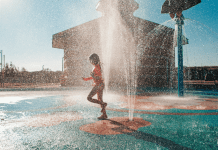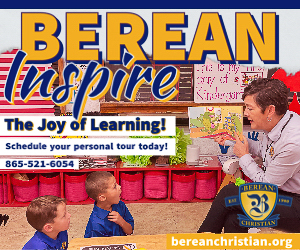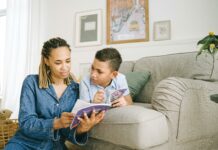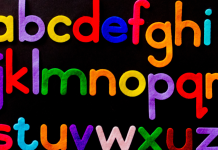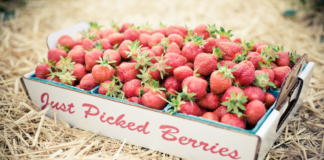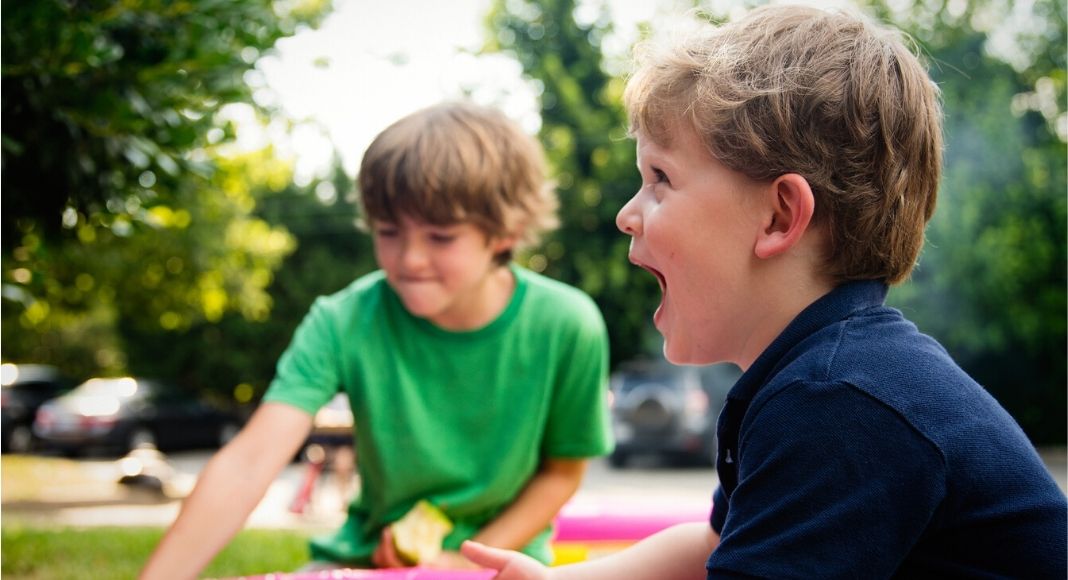 I’m taking off my mom hat briefly and dusting off my old child development hat for this one. With a bachelor’s degree in Child and Family Studies and a master’s degree in Early Childhood Education, I have a bit of background knowledge that I thought would be super helpful in raising children of my own. (News flash: It was not. Nothing can prepare you for motherhood.) But I do understand the science behind how children grow and learn, and I feel like this is a great time to share a little of that with all of you.
I’m taking off my mom hat briefly and dusting off my old child development hat for this one. With a bachelor’s degree in Child and Family Studies and a master’s degree in Early Childhood Education, I have a bit of background knowledge that I thought would be super helpful in raising children of my own. (News flash: It was not. Nothing can prepare you for motherhood.) But I do understand the science behind how children grow and learn, and I feel like this is a great time to share a little of that with all of you.
We have been saying for years that kids don’t get to play like they used to, kindergarten is too rigorous, kids are sitting for too long at a desk, etc. I am very PRO school. Teachers are creative people and doing an absolutely fantastic job with the time they are given, but even they are sounding the alarm that it’s not enough. When our kids are not at school, they are shuffling back and forth between sports, music lessons, church — all GOOD things, but the rat race of organized activities is stifling.
Our kids are missing critical opportunities to play, and it’s showing.
So while you are sitting at home under a forced slow down and worrying about all the learning time your kids are missing, let me encourage you that your kids might be making the greatest gains they’ve made in a long time. Dare I say, they might go back to school BETTER prepared than ever before.
Because children learn by playing.
Children learn every subject area taught in school through independent free play. From an early age, babies learn principles of physics when they build block towers. They learn to measure when they play at water tables. They learn patterns when they play hopscotch. They practice counting every time they notice one of their dolls is missing from the group. They learn to identify word families through nursery rhymes. Legos teach the relationship between geometry and spacial awareness. They learn literacy when they create a menu for a pretend restaurant. They learn new vocabulary when they need words for their dinosaurs’ shenanigans. I actually could go on forever.
Games are especially beneficial for learning.
You already know there are two types of games when it comes to kids: board games and made up games. Both are excellent for development! Board games teach kids to follow rules, plan ahead, and detect patterns. Made up games, like the kind kids create on a whim in the backyard, are even better. They learn why rules are important and how to enforce them. Math, science, and literacy all work together to make games fun.
Outdoor free play combines academic learning with whole body engagement.
Do not miss this! If you can get your kids to play OUTSIDE, you maximize learning potential. Interacting with natural elements and a bit of “risk” help children better understand the world around them. Proprioceptive input, such as running and jumping, trains children’s bodies to focus and ignore distractions. Children simply remember things better when they learn it while moving their bodies.
Kids work through their fears using imaginary play.
This one feels particularly relevant right now. Kids are so good at sensing when their parents are stressed or frightened. They sense the tone of the nightly news. They read their parents’ faces very well. Children work to understand their fears by acting them out in dramatic play. It can be a little nerve-wracking for parents to see kids pretending a scary virus monster is attacking the village, but they are rehearsing how they want to cope with their feelings in a very productive way. Maybe we should try it…
Learning social skills while social distancing.
While nothing can replace the value of social interaction for children, there is still a lot they learn playing by themselves. Perhaps my favorite skill kids learn when they play by themselves is the art of perspective taking. They play with their Paw Patrol toys and have to be all seven pups. Kids invent characters and imaginary friends, then play those parts. They learn people have different points of view and opinions, and they learn to reconcile those so playing can continue. Their emotional literacy shoots through the roof when they are afforded long sessions of uninterrupted play time.
So what will be the outcome of a long term school closure? I guess no one really knows, but I have a hunch we’ll see some really positive things emerge. Could we see an entire generation of kids that are more focused, well-adapted, and emotionally intelligent because they were finally allowed time to just play? Maybe this could be the impetus that changes how we structure our school days. At the very least, I hope this takes some pressure off you. If you find yourself struggling at the kitchen table over another math worksheet, take a deep breath and give your kid some play-doh. Send them outside. Play Candy Land.


